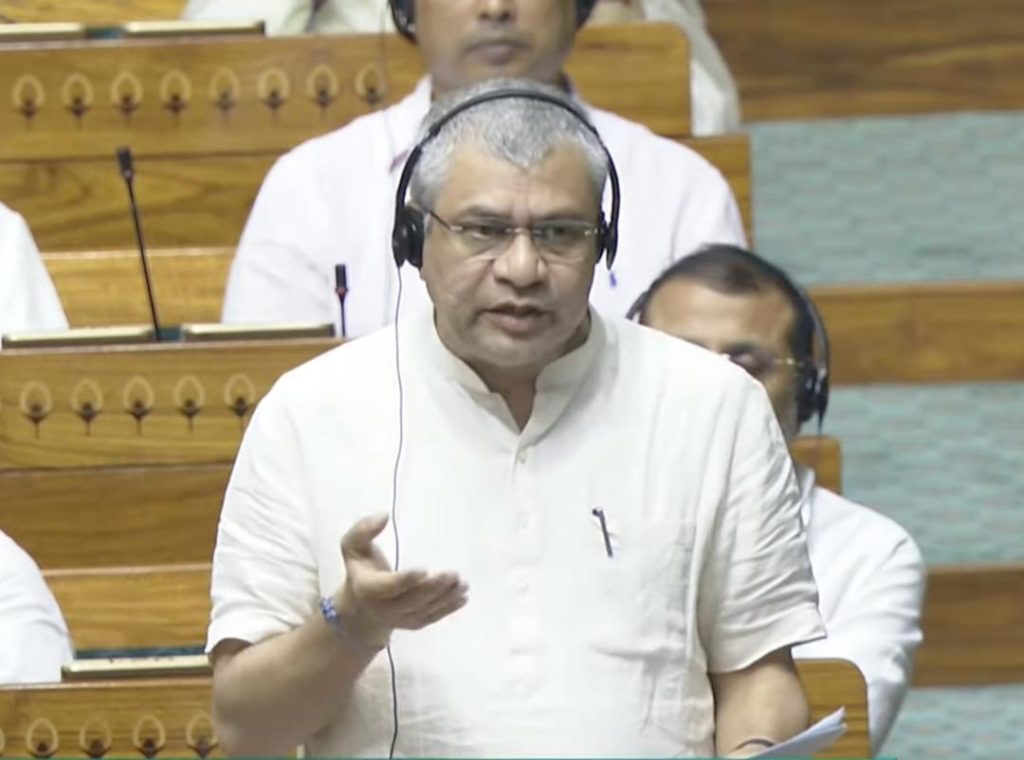
Between our revenue & middle-class families, PM chose families: Vaishnaw on Gaming Bill
On Wednesday, the Lok Sabha passed the Promotion and Regulation of Online Gaming Bill 2025, a landmark legislation that promises to regulate the rapidly growing online gaming industry in the country. While introducing the bill in the lower house, Union Minister Ashwini Vaishnaw made a notable statement that caught everyone’s attention. Speaking on the bill, he said, “When the Prime Minister (Narendra Modi) has to choose between revenue and the middle-class families, he always chooses the families.”
Vaishnaw’s statement, although brief, holds significant meaning in the context of the Gaming Bill. The bill, as he explained, has been introduced to “save the society from bad elements.” The primary focus of the legislation, according to Vaishnaw, is to tackle the growing concern of real-money and gambling games on online platforms.
In recent years, online gaming has become an increasingly popular form of entertainment in India, with millions of players from all walks of life logging in to play games on their mobile devices, computers, and consoles. While online gaming has its share of positives, such as providing entertainment and socializing opportunities, it also raises concerns about addiction, mental health, and financial losses.
The Gaming Bill, in this regard, aims to strike a balance between the growing online gaming industry and the need to protect Indian citizens from these negative aspects. The legislation proposes to ban real-money and gambling games, restrict certain types of content, and establish a regulatory body to oversee the online gaming industry.
Vaishnaw, in his statement, highlighted the need for regulation to protect the middle-class families, who he believes are the backbone of the nation. By choosing the families over revenue, Modi, as the Prime Minister, is making a conscious decision to prioritize the well-being and safety of the citizens over the potential revenue that the online gaming industry could generate.
This statement, although indirect, sends a strong message about the government’s priorities. By focusing on the middle-class families, the government is signaling that it is committed to protecting the interests of the common people, rather than just chasing revenue growth.
In recent times, there have been growing concerns about the impact of online gaming on mental health, particularly among children and young adults. Studies have shown that excessive gaming can lead to addiction, depression, and other mental health issues. By banning real-money and gambling games, the Gaming Bill aims to prevent these negative consequences and ensure that online gaming remains a harmless form of entertainment.
Furthermore, the bill also proposes to establish a regulatory body that will oversee the online gaming industry, ensuring that games are reviewed and classified according to their content and age appropriateness. This move will help to protect children and young adults from accessing inappropriate content and prevent online gaming from being used as a means to peddle gambling and other illegal activities.
In conclusion, the Promotion and Regulation of Online Gaming Bill 2025 is a significant step towards regulating and protecting the online gaming industry in India. By choosing the middle-class families over revenue, the Prime Minister, Narendra Modi, has once again demonstrated his commitment to prioritizing the well-being and safety of the citizens.
As the bill becomes a law, it will be crucial for the government to enforce the regulations effectively and ensure that the online gaming industry is brought under a strict regulatory regime. With proper regulation, online gaming can continue to thrive as a popular form of entertainment, while also protecting the interests of the middle-class families and the wider society.
Source:






